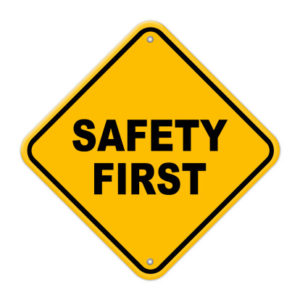
Everything flows from a sense of safety.
A couple of weeks ago, my wife and I were walking the dogs in our neighborhood.
It was a nice evening and we thought an after work walk would be a good time to get some exercise and catch up.
On our way back, we heard what sounded like firecrackers from across Lake Ida Road.
My wife lamented that it was late in the year for fireworks and I told her it sounded more like gunshots to me.
A day or two later, I read in the paper that what we had heard was indeed gunfire—the latest skirmish in what police are calling a feud between two local families.
In this particular incident, nobody was shot. But a bullet did strike S.D. Spady Elementary School.
Earlier this week, Spady was put on lockdown when more gunfire erupted in the neighborhood.
I’ve been told by some friends in the know that this issue is not as simple as two families going after each other. The feud has escalated to friends and associates making it hard for the police to deal with the situation. As someone recently told me: “you can’t put on a net on this thing.”
As a believer in the Second Amendment, but someone who also believes in reasonable gun control, it’s tempting to write an anti-gun screed and I wouldn’t be totally out of line if I did so. To be clear, I believe in the right to bear arms, but I don’t think you should be able to carry a bazooka, I think bump stocks should be banned and if you are an upright citizen you shouldn’t be troubled by a background check.
Will the crooks and the crazies still find loopholes and ways to get weapons?
Yep.
Do we have to make it easy for them?
No.
Still, while I think America has a gun violence problem—we are also suffering acutely from a people problem too.
There as some people in our society who do not value our lives or theirs and heaven forbid you end up in the wrong place at the wrong time.
So yes, you could be out walking your dog and be struck down by a stray bullet or you can be a child walking around your elementary school and catch a round.
That these outcomes are even remotely possible is a stark reminder that we have some serious issues to contend with.
The first order of business in any community is public safety.
It is without a doubt the most important responsibility of a local government.
So when I see these headlines, my heart goes out to the men and women in our Police and Fire Departments.
Our first responders have a huge responsibility and a very, very difficult job.
For many years, I had the privilege of “riding along” with our public safety personnel. I’ve always felt that we had a great Police Department and a very capable Fire Rescue operation. When you ride along with officers and firefighters, even for the briefest amount of time, you gain a deep appreciation for the challenges they face and the complexity that they deal with call after call, day after day, year after year.
I’ve long felt and have always contended that our Police Department were the unsung heroes of Delray because their hard work and effectiveness made it safe for people to invest here—to live, work and play in our community.
Our Fire Department which has always been so busy and so professional also gives us peace of mind that if something should happen they will be there within minutes to protect our lives and our property.
But headlines like we’ve seen lately are disturbing….deeply disturbing. If we don’t feel safe, we don’t have much.
When you love your city you take these things personally. These headlines leave you with a visceral reaction. This is where we live and if we are unlucky it’s where we can also die or be injured.
What’s happening is more than a wake up call: it’s an existential threat.
We can however, take comfort in the skills of the men and women of our Police Department. This may not be easy to throw a net over, but I have faith that we will find a way to end this nonsense.





